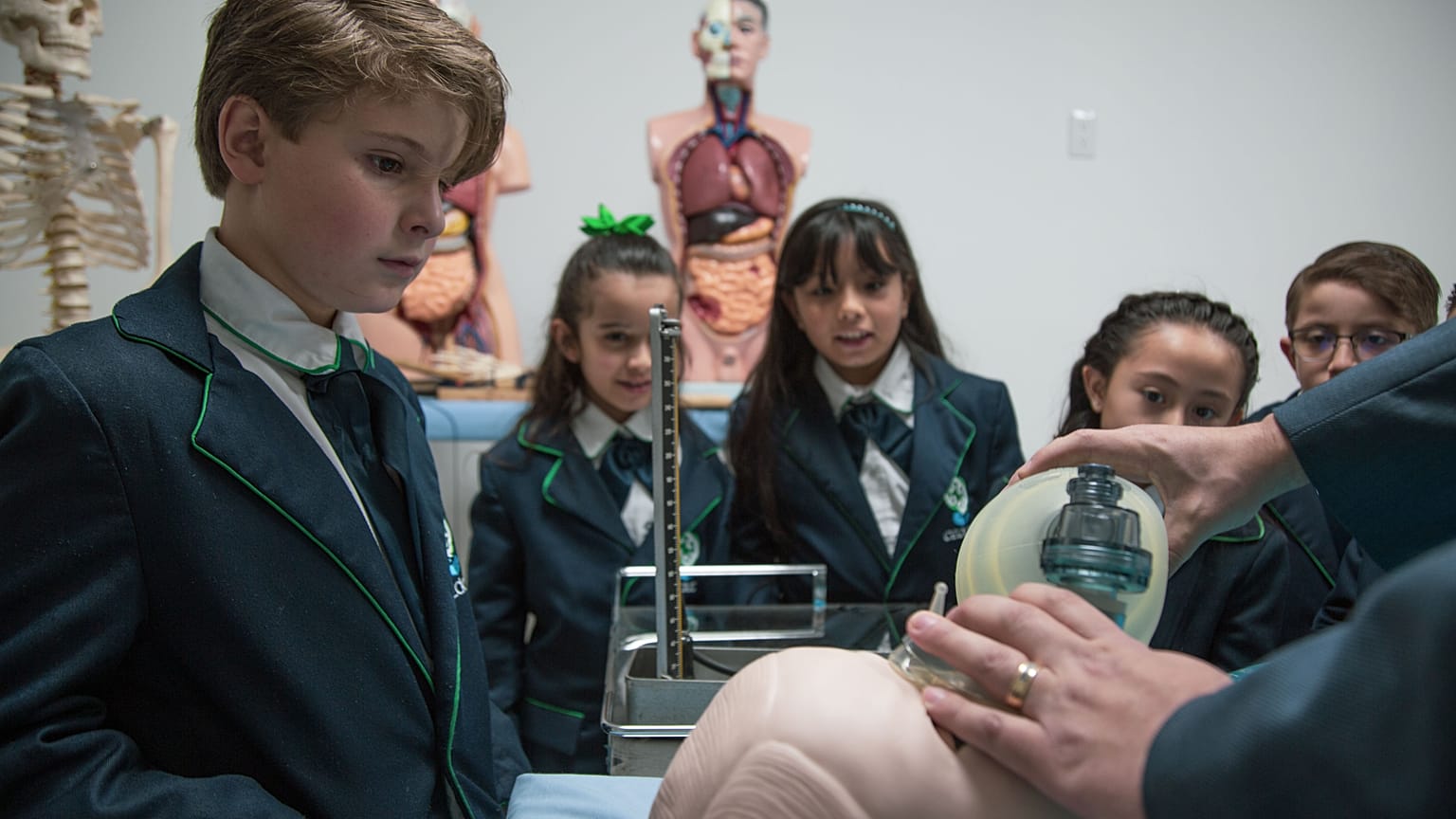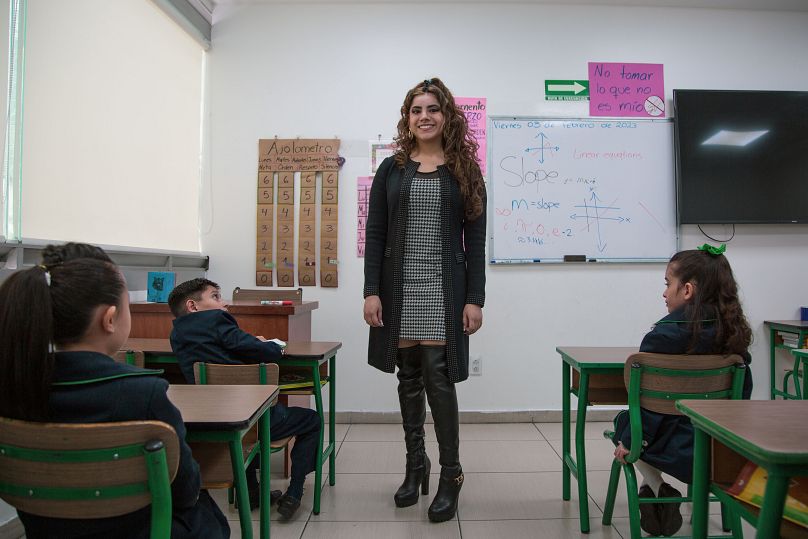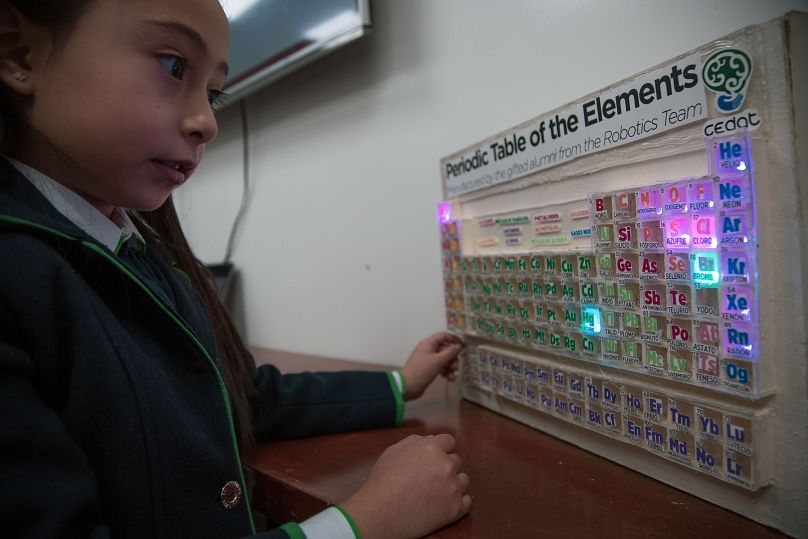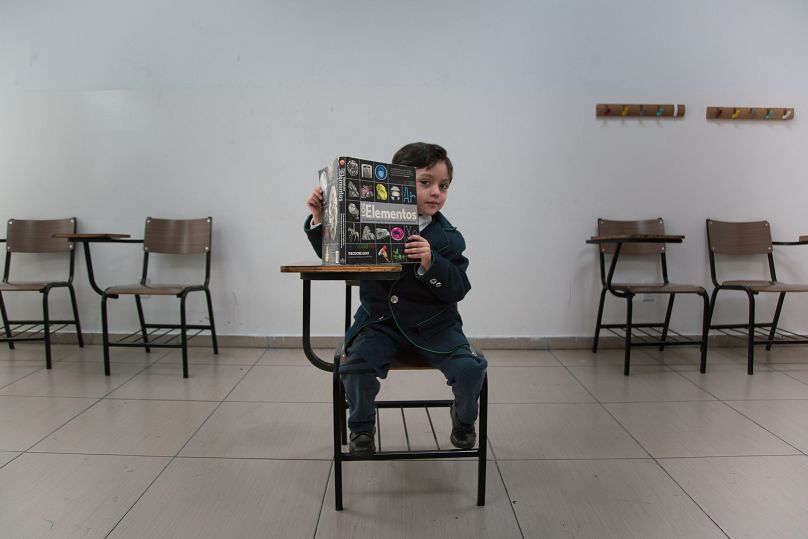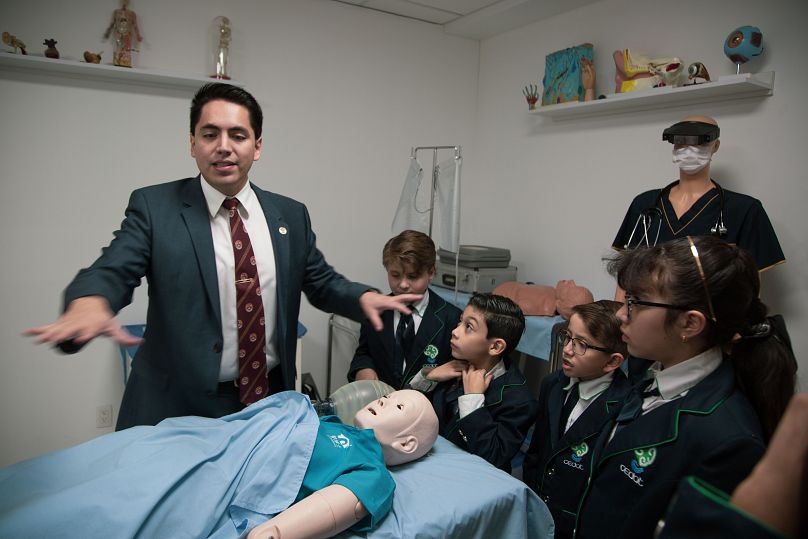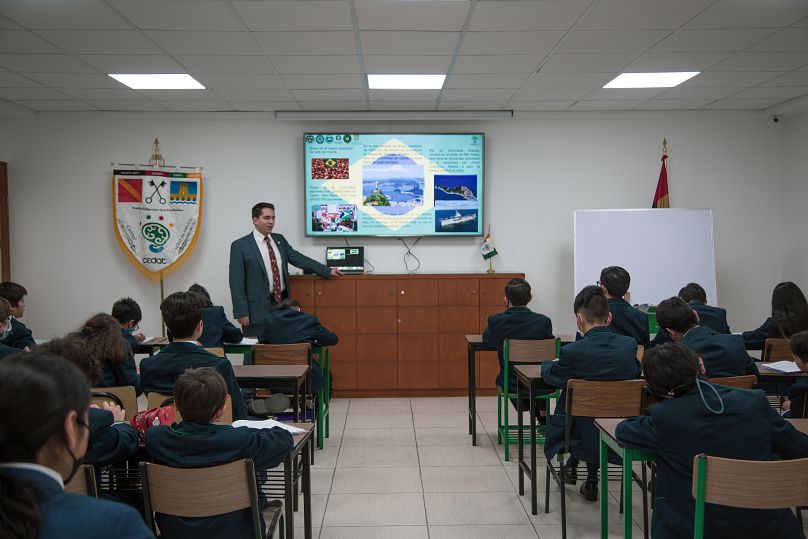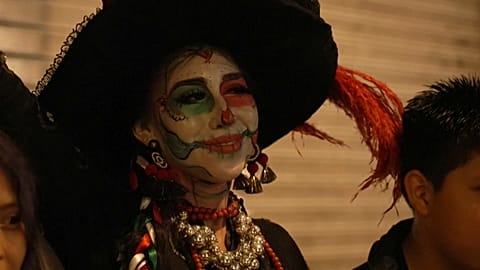In partnership with Media City, Qatar
SCENES shines a spotlight on youth around the world that are breaking down barriers and creating change. The character-driven short films will inspire and amaze, as these young change-makers tell their remarkable stories.
 ADVERTISEMENT
ADVERTISEMENT
 ADVERTISEMENT
ADVERTISEMENT
At age five, Dafne Almazán was described as a child genius who could solve complex algebra equations. By the time she was ten, she had graduated from high school. Dafne became the youngest certified psychologist in the world by the age of 13. Now only 21 years old, Dafne has a post-graduate degree in Mathematics from Harvard and is currently undertaking a PhD in education and an MA in music.
"I was doing everything faster, but also, I knew that it was a big responsibility because I needed to do something for Mexico. I want to inspire people," Dafne tells SCENES.
A centre for gifted students
The Centro de Atención al Talento, or CEDAT, offers an intensive and diverse curriculum for brilliant students from two years old to high school age. In addition to academic subjects like biology, physics and mathematics, students can also learn different languages, martial arts, musical instruments, drama and art.
"What we try to do is to give them a differentiated education so they can potentialise their giftedness and advance at their own pace," says Dafne, who teaches classes at the school. "There are many stereotypes about gifted kids, that they are sick, that they have something wrong with them," she adds.
Treated like a misfit
Aylin Mérida Lua studies at CEDAT after experiencing rejection and bullying at mainstream schools. According to her father, Victor Mérida Rubio, Aylin was treated like a misfit or made to feel like she misbehaved if asked too many questions. Aylin has been expelled from four schools for behaviour problems as a result.
"The teachers thought my parents taught me too much and that it was bad for me," the six-year-old explains.
It was unfortunate circumstances that set her accelerated learning in motion. As a baby, Aylin was diagnosed with lung disease, leading to her frequent and lengthy trips to the hospital. Her father devised educational and entertaining activities to ease the stress of being in the hospital.
"We would say, 'Let's take your picture and see what you look like on the inside.' I'd take an x-ray, and I'd tell her, 'Well, these are your ribs, this is your lung, here you see your heart.'" recalls Aylins father.
'Baby mode'
For gifted students in mainstream schools, having more knowledge than their peers can often be isolating. To fit in, Aylin entered what is known as 'baby mode'. Her father explains that she would no longer want to talk, participate or inform when she needed to go to the bathroom.
According to Andrew Almazán, the director of the Research Department at CEDAT, attempts to be accepted by others could lead to the mislabeling of gifted children as underperforming or underachieving. Andrew, Dafne's brother, was the youngest college graduate in Mexico at one point. He is no stranger to being misunderstood. He was misdiagnosed with Attention Deficit Hyperactivity Disorder, or ADHD, at just four years old.
"So many gifted children are misdiagnosed, even mislabelled with autism or with Asperger or ADHD," says Andrew.
Early intervention
In his role at CEDAT, Andrew's purpose is to detect gifted children as early as possible. He says that following this protocol avoids unnecessary suffering and ensures that the gifts of highly intelligent children do not go to waste.
"When we take the gifted child and put them in a speciality environment, they thrive. They are finally able to talk with others," he explains. "We want the kids to still be kids, but in an environment that challenges them. We can put them on track into the field where they can actually contribute something," Andrew concludes.
As a centre of education and psychological research, CEDAT is the first of its kind in Mexico. The centre is designed to work with talented children with above-average intelligence. The school has received 13,000 students to date. In the future, siblings Dafna and Andrew hope their school can become a blueprint for similar educational spaces nationwide.















